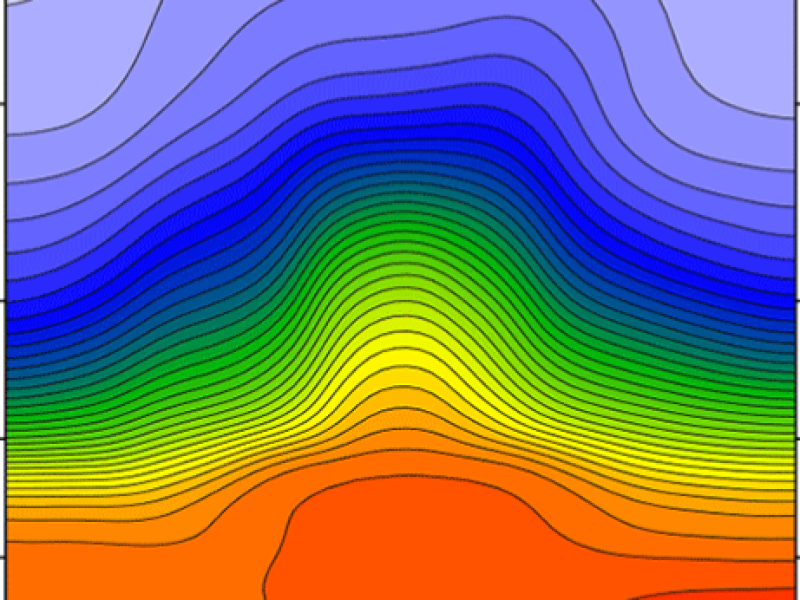Modeling of chemistry-climate interactions with emphasis on methane impacts in regional and local scales
Advisor: Tomas Halenka (DAP CUNI)
Funding: Fully funded
Contact: tomas.halenka@matfyz.cuni.cz
Funded PhD position with contract is opening at the Department of Atmospheric Physics at Charles University, Prague, Czech Republic aiming at modeling of chemistry-climate interaction with emphasis on methane impacts in regional and local scales.
Reference Code for the application: DCU25–4
Euraxess: https://euraxess.ec.europa.eu/jobs/316694
Description: While conclusions concerning the major contribution of CO2 emissions from fossil fuels to global warming are considered to be known with high confidence, there are significant uncertainties in other well mixed greenhouse gases (GHGs) like methane (CH4) or N2O connected with other different anthropogenic sources as well, like agriculture, coal mining, waste, gas and oil industry, as well as natural sources, e.g. wetlands, and permafrost thawing, which provides a feedback to climate change. The subject will aim to identify significant knowledge gaps for methane and its impacts, to quantify the emissions from such sources, to understand the processes behind these emissions and to assess the processes of interaction in the atmosphere. This effort will be based on integrated in-situ and remote observations and measurements supported by atmospheric-chemistry modelling, with emphasis on regional and local (urban) scales. Another goal of the subject is to improve more detailed picture of the feedbacks of methane in the climate system on these resolutions. The methane effects are of extreme importance especially at shorter time-scale, which, in connection to air quality interaction, can impact the decissions on GHG mitigation actions. This will be studied over the scales, using up-to-date RCMs models coupled to atmospheric chemistry. Different scenarios of methane mitigation will be tested in future projection simulations of climate change and its impacts till 2050. More detailed scenarios of methane reductions will feed in the overal GHG and global warming mitigation process, especially under UNFCCC COPs activities and IPCC AR7 cycle development.
The successful candidate will join the Gravity Wave (GW) research group funded by the Czech Science Foundation Junior Star project 23–04921M „Unravelling climate impacts of atmospheric internal gravity waves“ and contribute to the development of an orographic gravity wave parameterization scheme for climate models. The Ph.D. study of the candidates will be fully funded, partly from the mentioned project and partly as a regular monthly stipendium, together making about net 1500 EUR/month income (the stipendium is gradually increasing during the study – for details about the phd studies at the department of atmospheric physics, please visit: https://www.mff.cuni.cz/en/physicsphd/f8/program-overview
Specific tasks:
- High resolution data on emission sources (both anthropogenic and natural) will be compiled over Europe. For natural sources, available quantification methods will be studied, developed, implemented and validated.
- Familiarizing with the RCM/CTM model couple and implementing the methane emissions, with the parameterization for natural sources. Sensitivity tests will be performer to validate the implementation and to assess the interaction with other air pollution.
- Modeling based analysis of the effect of resolution, at European scale and local scales of urbanized region and the region of permafrost thawing, validation.
- Selected scenarios simulations, with methane mitigation options. The assessment of methane impacts on regional climate and interaction with benefits from methane reductions on air quality and climate.
The tasks will be fulfilled within the project Horizon Europe “Non-CO2 Forcers And Their Climate, Weather, Air Quality And Health Impacts” (FOCI) no. 101056783 and the project OP JAK “Georisks” CZ.02.01.01/00/22_008/0004605. The successful candidates will join a young and ambitious research team at the Charles University working within the Atmospheric Chemistry Modelling Group (https://kfa.mff.cuni.cz/en/groups/modelling-atmospheric-chemistry) and, within the project, will collaborate with other Czech research institutes (Czech Hydrometeorological Institute, Czech Academy of Sciences etc.). The Ph.D. study of the candidates will be fully funded, partly from the mentioned project and partly as a regular monthly stipendium, together making about net 1500 EUR/month income (the stipendium is gradually increasing during the study – for details about the phd studies at the department of atmospheric physics, please visit: https://www.mff.cuni.cz/en/physicsphd/f8/program-overview
Requirements:
- Master-of-Science-equivalent degree in meteorology and/or environmental physics with fulfilled courses of atmospheric chemistry and physics.
- The candidate should have good to very good experience in Unix / Linux scripting and programming skills in Python, SQL or Fortran.
- Strong communication in English language (spoken and written)
- Willingness to interact with an interdisciplinary science community
- A creative mind-set for scientific research
- Previous experiences in investigation of atmospheric gravity waves including their model representation and effects are great asset.
Application: Please send your application by March 31, 2025 to kfa@matfyz.cuni.cz
Please include:
- Academic CV and a pdf of your diplomas including (link to the) the diploma thesis
- List of course topics related to meteorology, air quality, climate modelling or atmospheric physics
- Specification of programming and language skills
- List of publications (if any)
- List of research projects (if any)
- Statement of research interests and career goals, indicating why you are interested in the position
- List of at least two references: names, phone numbers, and email
After the selection of the candidate (during April) and the approval of the supervisor of the phd project, an official application has to be submitted to the faculty (to be specified later with the selected candidate).
Information on deadlines, how to apply and what is required in general can be found at Application.
Further information about our department can be found here.


